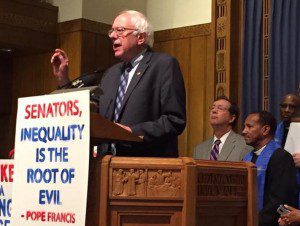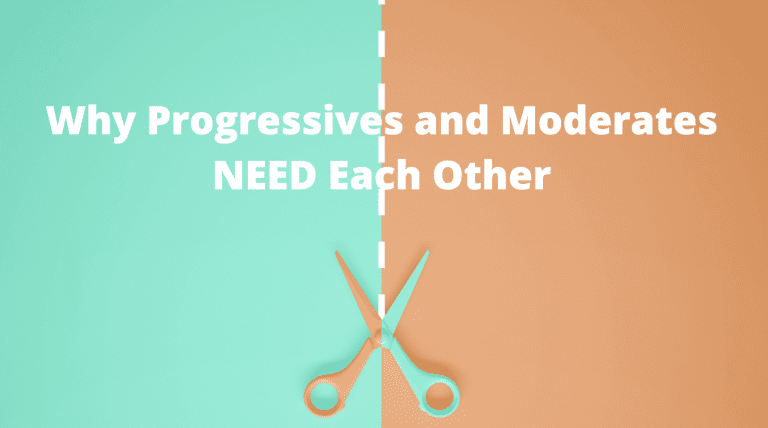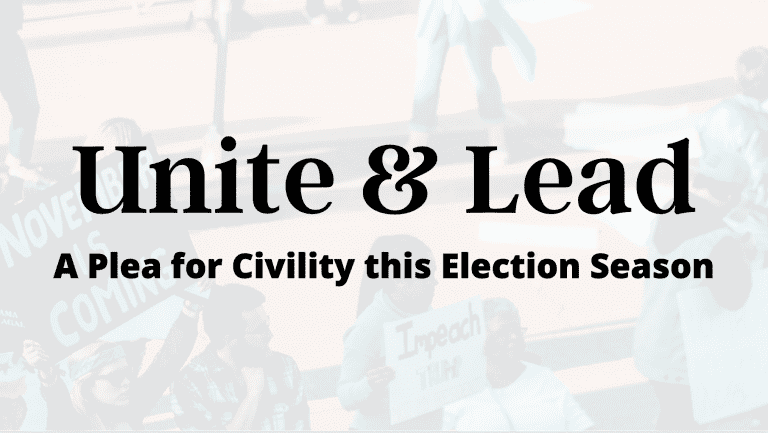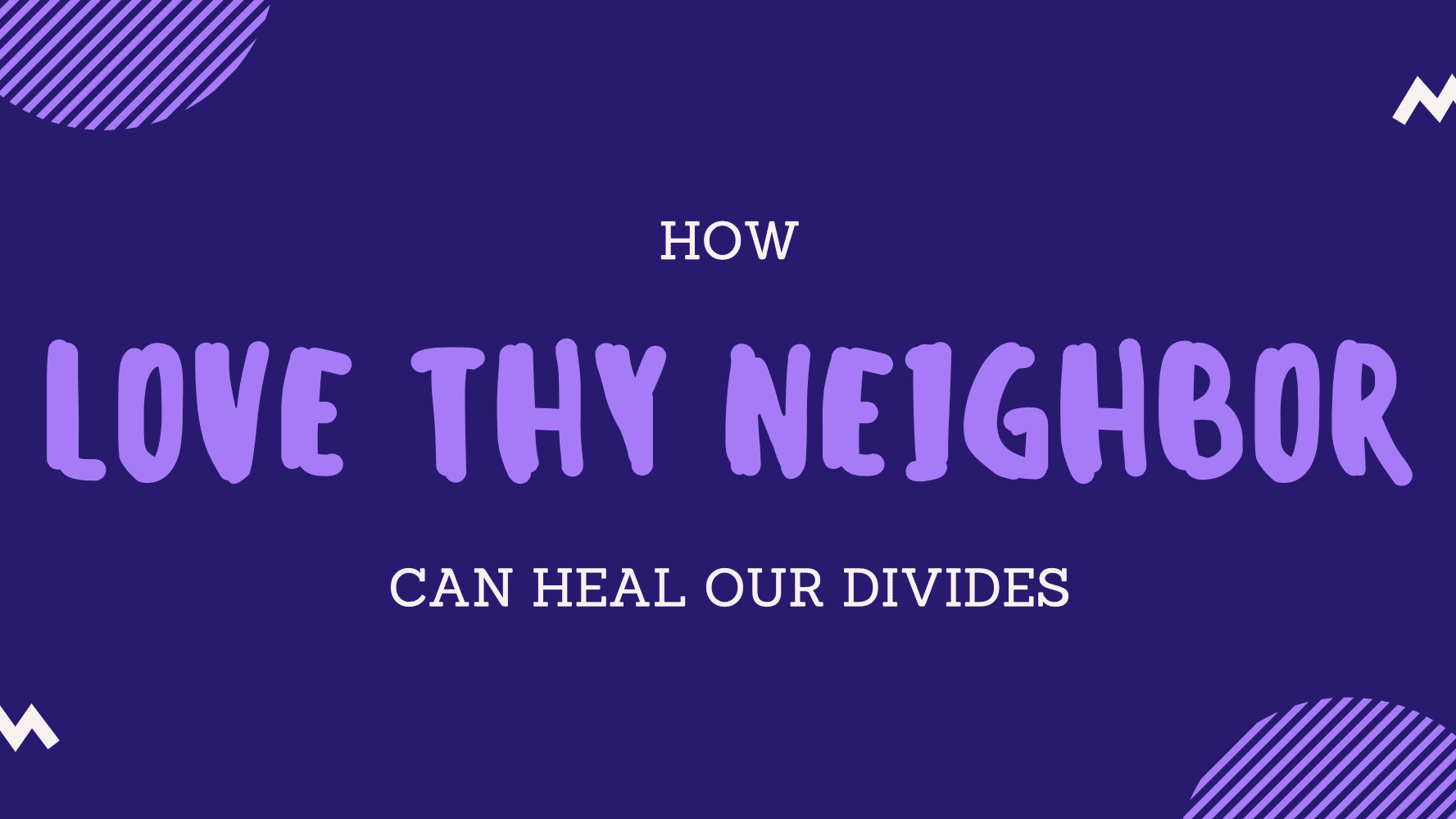During every Presidential election in recent history, candidates work hard to lay claim to a few select demographics they  believe will help them secure enough votes to win the White House. One demographic most prized by conservative candidates is Evangelical Christians, considered by many to be the single most politically influential religious group in the nation. Nearly every speech or public appearance a Republican candidate makes will have a strong emphasis on “Judeo-Christian values” and will use catch phrases like, “the tomb is empty,” “our goal is heaven,” and “the transformative love of Jesus Christ,”which function as a sort of hat-tip from the candidate to Evangelicals as if to say, “I’m one of you.”
believe will help them secure enough votes to win the White House. One demographic most prized by conservative candidates is Evangelical Christians, considered by many to be the single most politically influential religious group in the nation. Nearly every speech or public appearance a Republican candidate makes will have a strong emphasis on “Judeo-Christian values” and will use catch phrases like, “the tomb is empty,” “our goal is heaven,” and “the transformative love of Jesus Christ,”which function as a sort of hat-tip from the candidate to Evangelicals as if to say, “I’m one of you.”
Every Republican candidate views the faith vote as essential to their campaign, so much so that they even hire multiple staff members just to help them reach this constituency. They pour millions of dollars into campaign ads highlighting their faith and making sure they meet with hundreds of thousands of pastors on their tours across the nation. Republicans understand that in a largely religious, largely Christian nation, appealing to voters’ faith, by which most make their political decisions, is an essential strategy to securing the support they need to run a strong campaign,
It has perplexed me, the more I watched these Presidential campaigns unfold, that the Democratic candidates have all but ignored not only Evangelicals, but people of faith in general. As far as I can tell, not a single Democratic candidate has hired any staff member devoted to reaching out to the faith community. Only rarely does their personal faith make it in campaign speeches or interviews. Though candidates will seek to secure endorsements from the faith community, they often have not engaged with the faith community in a way that recognizes its power and influence within the United States. Yet Hillary Clinton and Martin O’Malley both identify as strong people of faith, and Bernie Sanders, though a secular Jew, has often said in the past he understands and supports how an individual’s personal faith propels them to be moral agents in society. Why is it, then, that Democrats have not devoted significant time or energy to reaching this crucial demographic?
In 2011, the Public Religion Research Institute released a poll which revealed that 44% of millennial Evangelicals fully supported same-sex marriage. Over the past six years, those numbers have only increased. Likewise, on issues of climate change, healthcare, and criminal justice reform, millennial Evangelicals are leaning towards a much more progressive position than older generations who claim an Evangelical identity. The Public Religion Research Institute also found that 23% of millennial Evangelicals identify as politically progressive, and 57% of the entire U.S. identifies as religiously moderate to progressive. 61% of millennial identify from religiously moderate to progressive (38% moderate, 23% progressive) as opposed to only 17% identifying as religiously conservative.
Looking at the millennial Evangelical demographic alone, it is clear most are not likely to vote Republican in 2016. What is also clear however, is that millennials on the whole, are actually a significantly religiously oriented demographic. A large majority of millennials identify as people of faith, (78%) and a majority of those identify as moderate to progressive politically. What follows is that it is our faith that will guide us in our political and social decision-making. While it is true that we are not looking for candidates to thump a Bible on the podium or speak at Liberty University, the polling would suggest that understanding how faith influences a political candidate is important to us, and hearing more about their personal spiritual journey would certainly make them more relatable.
Considering members of the millennial generation were born between the years of 1982 and 2004, nearly every millennial will be old enough to vote in the 2016 election. Why is it that Democratic candidates have not devoted nearly as much time and resources to reaching this vital demographic as their Republican counterparts? Why is it seen as a primarily conservative strategy to reach out to people of faith? These are the questions that I believe every Democratic Presidential campaign should consider as we approach the primaries.
**Update: According to recent reports, Sanders has hired a national faith based director in the last few weeks.














